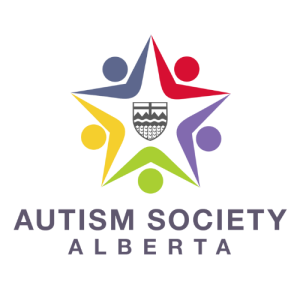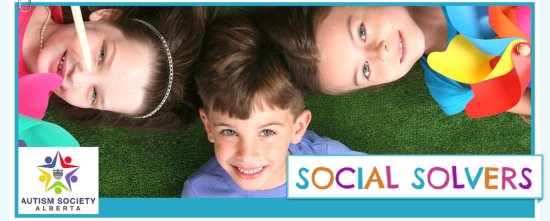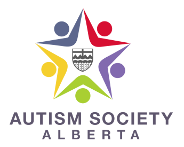Getting Ready for Back to School
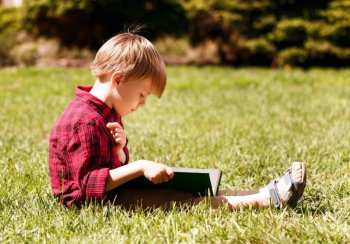
So what can you do to help your child or your student with autism to get ready? Here are a few pointers to help you get started, and maybe inspire you to come up with your own personalized solutions. Whether you’re a parent, a teacher or and aide, being proactive can save you a lot of trouble!
At home you can start by reading fun stories about going back to school. Even make your own social story about going back to school, if you know how. If you have any photos of fellow students or the school and staff you can look at them and talk about them. You can also go visit the school playground to familiarize them with it. It would be even better to arrange a playground date with other students who will be going back to school with your child.
Usually the staff goes back to school a week before the students. Take your child into the school two or three times during that week to get them used to their teacher and/or aide, the echoing sounds, the lights, the gym, the bathroom, the playground, etcetera. Pack a lunch and eat it wherever your child would normally eat lunch. Find out where her desk will be and read a fun book or color a picture while sitting there. Take photos of her teacher, aide desk, and other key areas so that you can look at them at home and talk about them.
If you know transitioning back to school will be VERY difficult, consider letting your child go only half days for the first week that the other students are back. This more gradual start could make the difference between a negative or a more positive feeling towards school, and give him more time to adjust to sensory issues in the school.
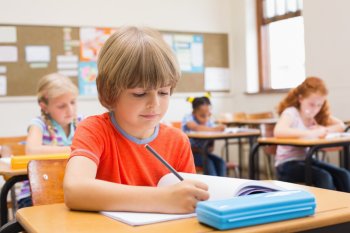
Don’t forget to work with your child’s teacher in providing an optimum learning environment. Where’s the best place for his desk? Near the teacher’s desk so she can help him? Near the front of the room so he’ll attend to what’s being taught more? At the side of the classroom near the door so he can easily leave when a break is needed? It’s different for everyone.
Also consider your child’s schedule with the teacher. Try to have some variety in sitting down time versus movement time. If possible, have a visual schedule prepared during that week the staff is back, so you can show it to the student at home often and prepare them. When possible and practical, give your student some choices, so that they don’t feel school is totally out of their control. Agree on a signal or a word that indicates to the class staff that they need a break. Teach the appropriate way to ask to go to the bathroom.
Once school starts, if your child has symptoms that are highly noticeable to other students, consider giving a fun and interactive presentation to the students, all about your child. This is especially important if your child is entering a new school or new class. If your child is non-verbal, you can show the other students how to communicate with your son or daughter, and how they communicate (in whatever form that may be). Your child should not be in the class at the time.
Taking the time to make your child or student feel safe and acclimatized to the school environment is well worth the effort. It can make everything easier for the parent, teacher, fellow students and your child, and help the momentum towards the team’s goals start earlier. Most importantly, it starts the year off on a positive and engaging note for the student.
Kitty Parlby has presented autism workshops for almost 10 years, works as an Educational Assistant with special needs children, and is a board member for the Autism Society of Alberta. She also spent 5 years on the board of governors for Aspire Special Needs Resource Centre. Kitty can be contacted on Facebook or Linkedin.
Social Solvers is Back!
We are pleased to announce that Autism Society Alberta is scheduling another session of Social Solvers in Central Alberta! The initial 8 week social skills group, which was run in the last school year, was very helpful for the students. Feedback from the parents was that it was a great resource and they were very happy they were involved with their children. The program will run from 6:30 to 7:30 on Sept 28, Oct 5, Oct 26, Nov 2, Nov 9, Nov 23, Nov 30, Dec 7. The cost will be covered by Autism Society Alberta.
Social Solvers was developed by Autism Society Alberta with funding from Family Support for Children with Disabilities (FSCD) and is run by the Autism Society of Alberta. It consists of 1 hour per week of social skills instruction for 8-10 weeks. The program runs up to three times a year based on community interest. Social Solvers is run by a registered Speech Language Pathologist and 1-2 Behavioral Aides.
Each series of the workshop will include up to six children with a caregiver or supporter. Caregivers/supporters are required to facilitate the application of what is learned in the session to the outside world. Each group will participate in weekly workshops, practice and follow up sessions over a ten week period.
There will also be neuro-typical high school aged mentors in each class to partner with the younger kids – these mentors will work with the children during class and then go to the child’s school during the week at lunch or recess to help them work on practicing what they learn in the class.
Social Solvers is a social skills program developed and run by the Autism Society of Alberta for children aged 5-7 who have Autism Spectrum Disorder living in Central Alberta.
Although this group is geared towards children on the spectrum, any children ages 5-7 who would benefit from improving their social skills work are welcome to apply. For more information or to register, click here.
Autism Alberta’s AGM: A New Director’s Observations

Lastly, having a child with ASD can be isolating. In our home there are four children ranging in age from 2 to 8, and our two oldest children have special needs, so to do an outing we need an extra set of hands. We also need to have a plan, and we are very particular about what we do on outings, keeping David’s safety in mind at all times. I learned about so many exciting family events, support groups, camps, respite opportunities, and social gatherings for both parents and children that are happening all over our province. These programs and events are being run by people who have gone through the same experiences and faced the same challenges as the rest of us. By sharing their journeys, they gave us ideas about how we can create better lives for our loved ones with autism. It gave me a sense of hope for what is possible for us to do as a family.

Autism Society Alberta
Board of Directors 2015-16
Camp Kids First Wraps Up for the Summer
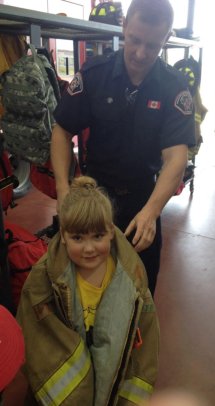
The camp ran for three weeks this year, accepting children ages 5-19. Thirty children with Autism, Smith Magenis Syndrome, Alternating Hemiplegia of Childhood, Global Developmental Delay, Cerebral Palsy and several other disorders came together to have some summer fun. These children, who struggle to participate in mainstream activities, spent a week going on outings and playing outdoors. Some of the activities offered to them were swimming, boat rides, going to the lake, and seeing local attractions like Heritage Park and the Dunvegan Greenhouse. The younger children took a trip to a fire hall, while the older kids took a trip out to the airport and had a pizza party there.
The goal of the parents who put together Camp Kids First is to make sure that the kids have fun. Natalie Dumoulin, this year’s camp director and local teacher, along with the assistant directors, did an excellent job of making this happen. Most kids came home happy and tired each day and excitedly went to camp in the morning. Each child had a 1:1 aide, funded by FSCD and staffed by McMan, making activities doable and happy. Along with fundraising done by parents, FSCD’s help in paying the 1:1 aides enabled the camp to stay affordable for families to send their children.
Moving forward, Camp Kids First is looking towards another fun summer next year and have possible plans of adding more weeks of camp in the future and expanding into spring break. For more information, go to http://www.autismfortmcmurray.org/kids-camp-first.html.
Central Alberta Parent Support Group Meeting
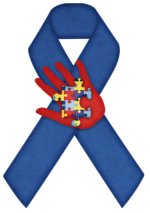
Parent Support Group Meeting
Monday, September 21
6:00 p.m – 8:00 p.m
G.H. Dawe – Activity Room 2, 56 Holt Street, Red Deer
Agenda:
- Upcoming Programs
- Parent Perspective
- Have your input into services you would like to see in Central Alberta
Upcoming Meeting: October 19 will be a meeting for newly diagnosed families
2015 ELS for Autism Golf Challenge
Click the poster to see a larger version
We Want to Hear From You!
Medical Sensory Series
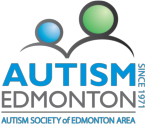

The Medical Sensory Series: Doctor’s Visits is an opportunity for families to come together and learn more about ways to prepare and succeed in a medical setting. Parents will learn valuable tips and tricks for sensory success, as well as important information to support effective advocacy for their children. The series consists of three sessions. The first session, The Parent Learning Session, will be comprised of the clinical and parent perspective, and parents will leave with tangible tools to use to support their children. At this session families will sign up for two separate happy visits to a clinical setting to apply these tools and expose their children to a positive clinical experience.
If visiting the doctor is an appointment you dread, this may be the series for you!
September 26, 1:00-3:00pm at The Maier Centre*
(17451 103 Avenue Edmonton, AB)
Happy Visits:
October 17 & November 7 (Appointment times will vary)
Families must attend the Parent Learning Session in order to sign up for Happy Visits. Respite may be requested at the Maier Centre during the Parent Learning Session (limited respite spots available, request when registering).
Register for your spot today! Space is limited.
RSVP: matthew@childrensautism.ca – 780-616-4128
Cost: FREE
*Families must attend the Parent Learning Session in order to access the happy visits. Families can request respite at the Maier Centre for this session when registering (subject to availability).
Quest for Independence
 Quest for Independence is an innovative program for young adults with ASD designed to build skills of independence, explore work and/or volunteer opportunities and ultimately prepare the young adult and his/her family for the day he or she will leave home. It is a hybrid program that utilizes Family Managed Services (FMS) funding, thus maintaining a high degree of family involvement, while being administered by the Centre, in turn reducing the burden on families. The Centre hires, trains and supervises staff. Quest for Independence uses a group model for service delivery to reduce the social isolation sometimes experienced when accessing FMS funds and one of the main goals of the program is to facilitate the development of friendships.
Quest for Independence is an innovative program for young adults with ASD designed to build skills of independence, explore work and/or volunteer opportunities and ultimately prepare the young adult and his/her family for the day he or she will leave home. It is a hybrid program that utilizes Family Managed Services (FMS) funding, thus maintaining a high degree of family involvement, while being administered by the Centre, in turn reducing the burden on families. The Centre hires, trains and supervises staff. Quest for Independence uses a group model for service delivery to reduce the social isolation sometimes experienced when accessing FMS funds and one of the main goals of the program is to facilitate the development of friendships. Expected Outcomes
Expected Outcomes
For Participants:
- Increased community inclusion
- Increased feelings of belonging
- Increased self-determination
- Increased self-advocacy
- Development of skills of independence such as meal preparation, housekeeping, laundry, social skills, money skills.
For Families:
- Reduced family stress
- Reduced administrative tasks
